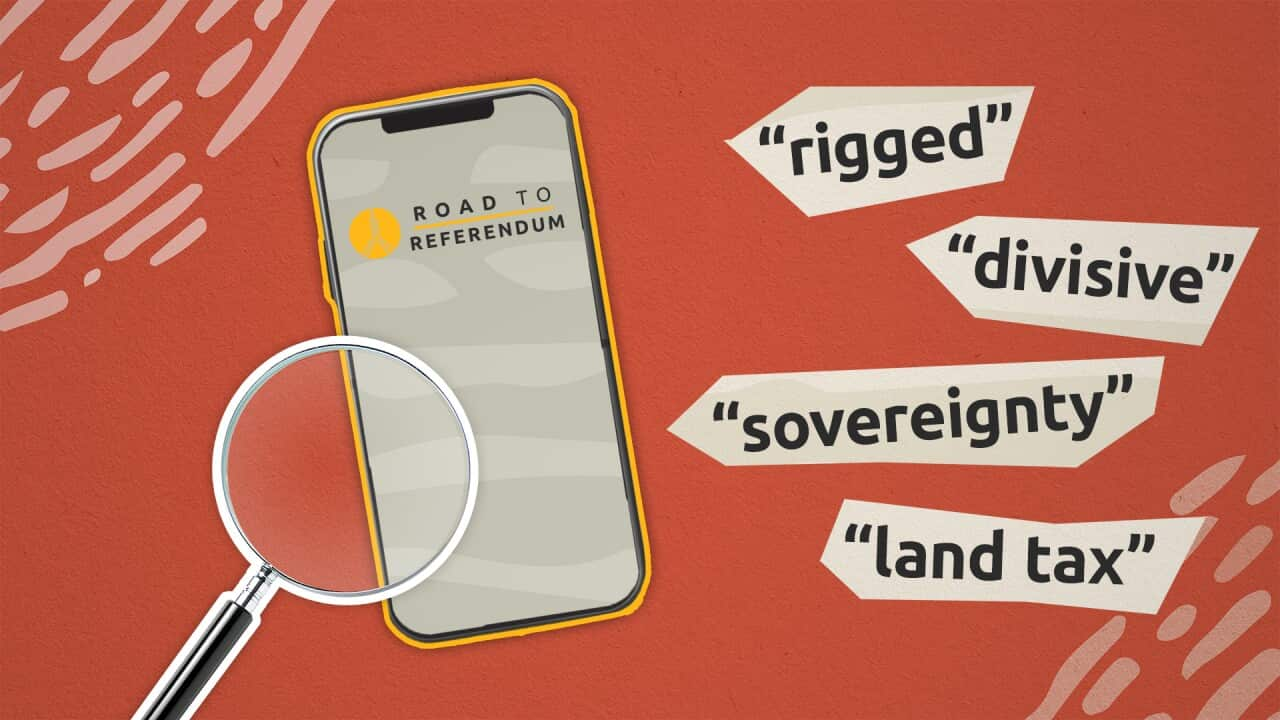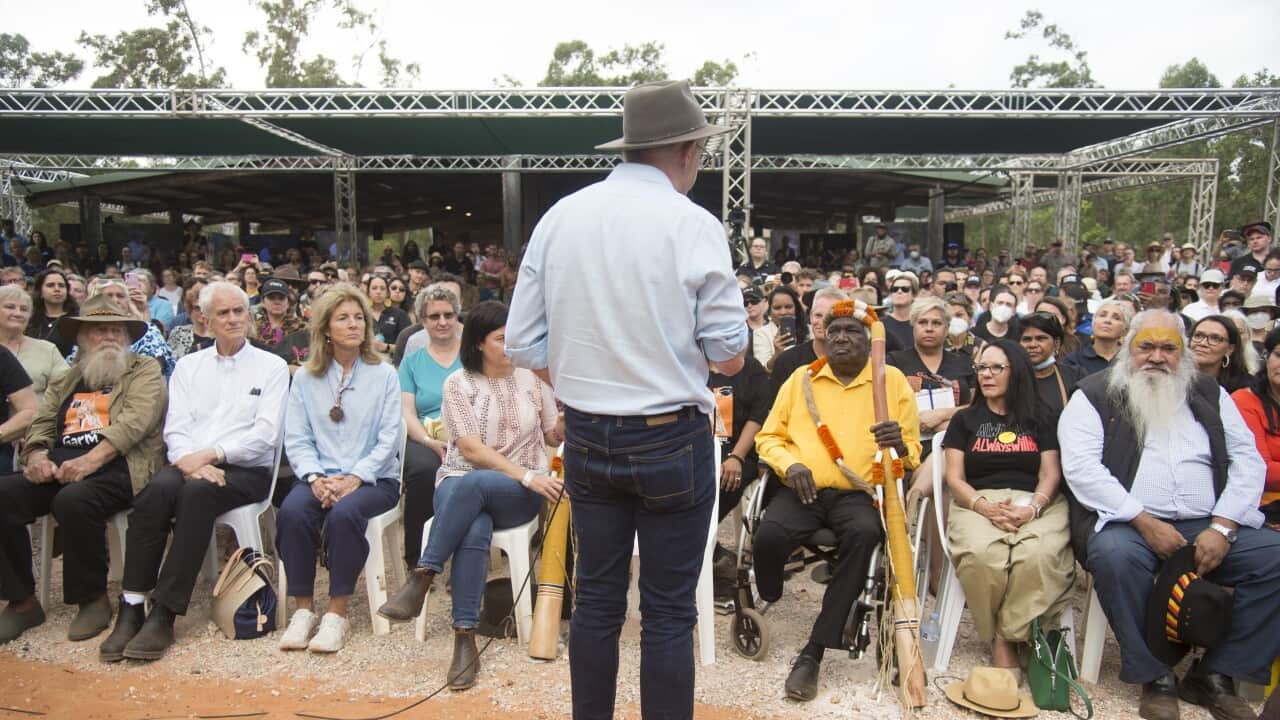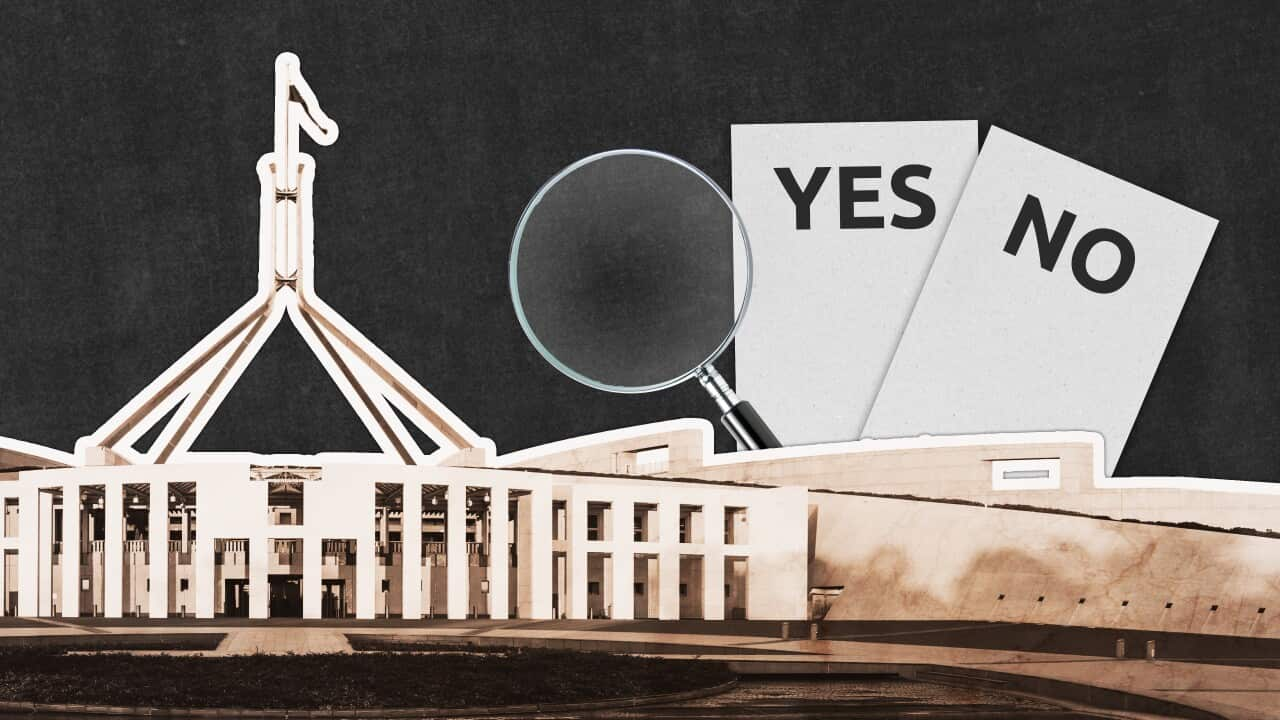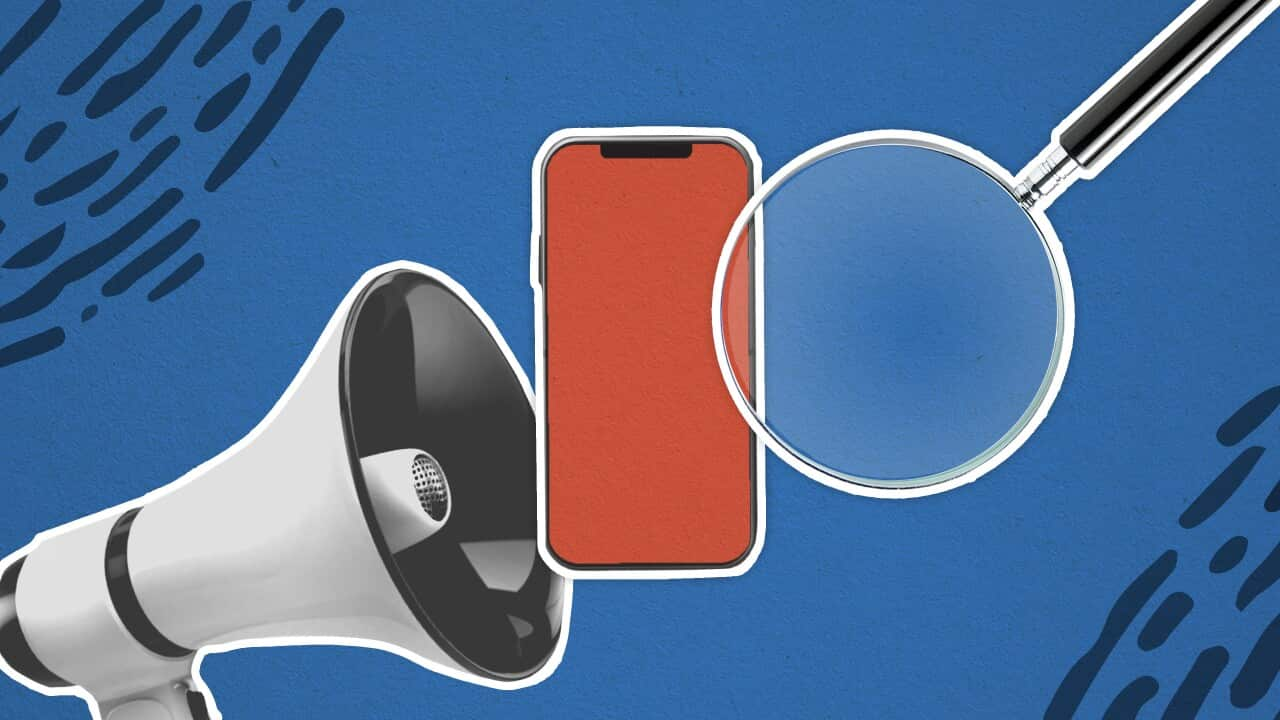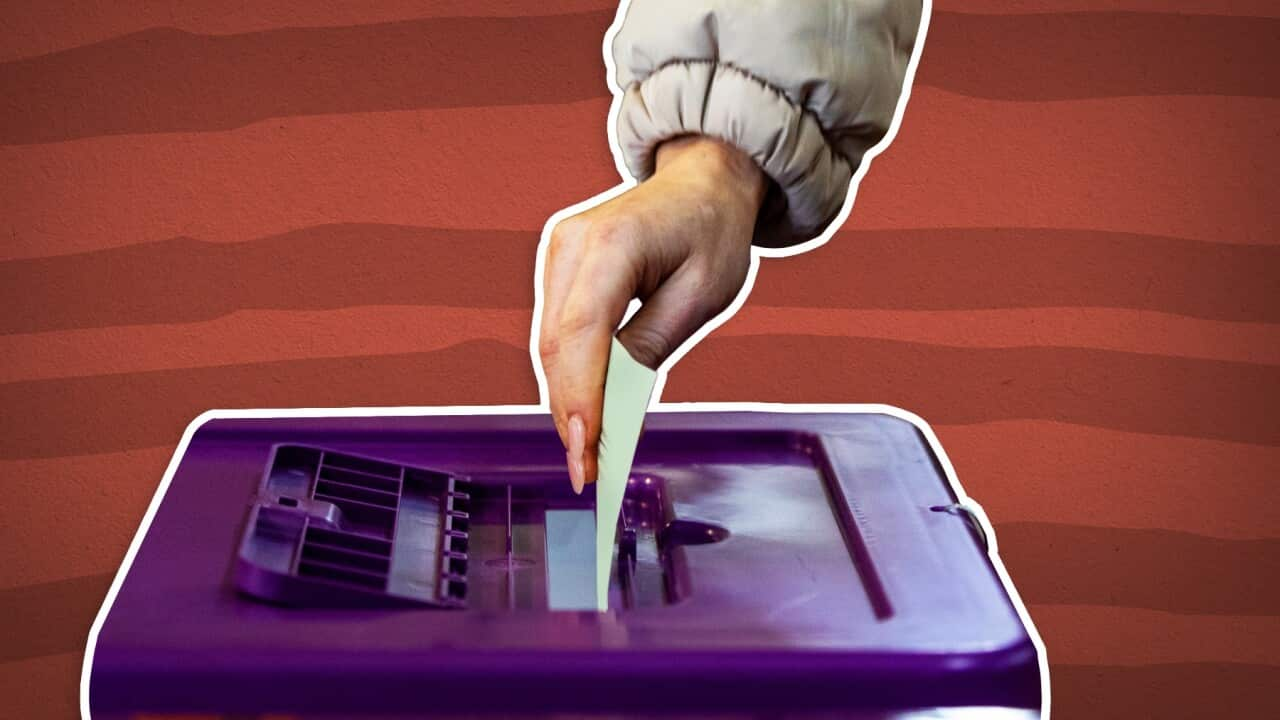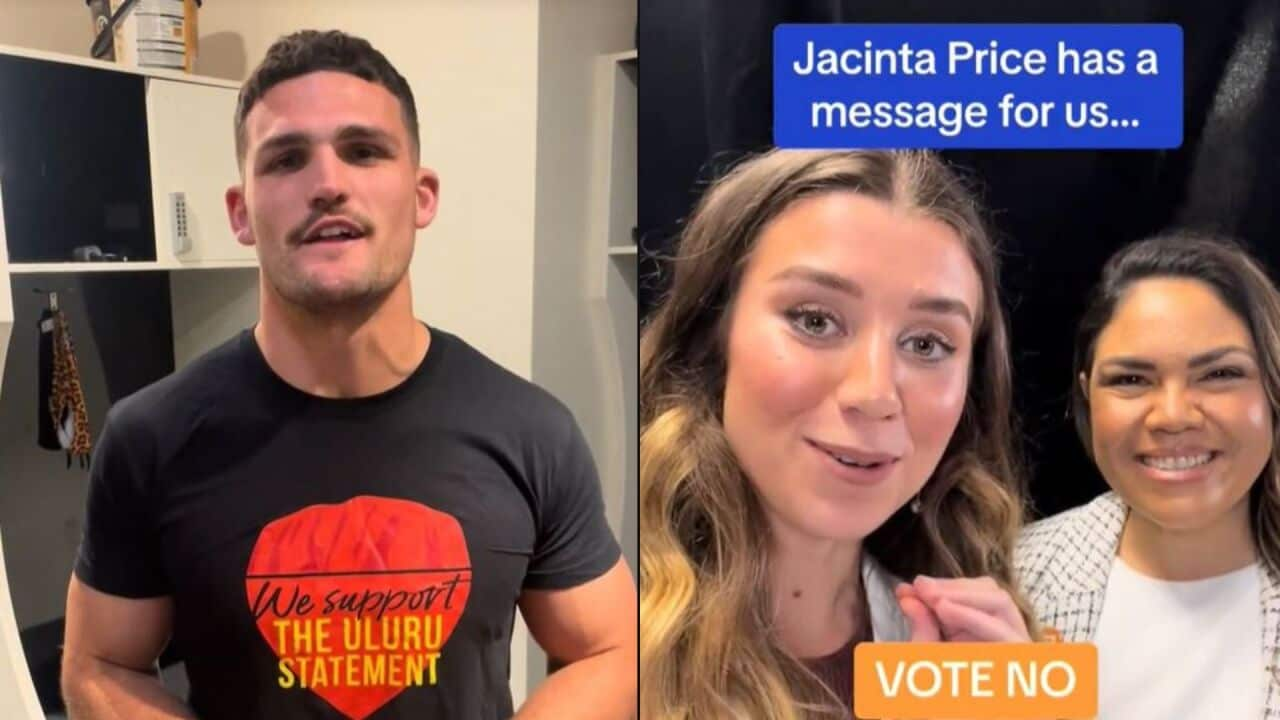Key Points
- Ahead of the Voice to Parliament referendum, disinformation has been circulating online and in the community.
- SBS News has had the most prominent claims, including allegations about racial division and native title, fact-checked.
- Australians will head to the ballot box to vote in the referendum on 14 October.
As the Indigenous Voice to Parliament Referendum draws closer, claims have been circulating about what it could mean for Australia if it's successful.
Some say the Voice will create racial division, others argue the referendum is rigged, and there have even been suggestions that the United Nations would use the Voice to take control of Australia.
SBS News has collaborated with RMIT's FactLab CrossCheck, which verifies online claims, to investigate the most prominent pieces of disinformation circulating about the referendum. We also spoke to a constitutional law expert about the claims.
1. The Voice would give special rights to one race of people
One of the most talked-about claims is that the Voice to Parliament would divide Australia by race, or give special rights to one race of people.
Members of the prominent No campaign have
But what about the proposed Voice and race in the constitution?
The proposed law Australians are being asked to approve would insert lines into the constitution recognising Aboriginal and Torres Strait Islander peoples as the First Peoples of Australia.
Esther Chan, bureau editor at RMIT CrossCheck said: "The Voice does not propose any racial segregation policies, but an advisory body that makes non-binding representations to Parliament, and which may recommend changes to improve laws and policies that have an impact on Aboriginal and Torres Strait Islander peoples."
Cheryl Saunders, a professor at Melbourne Law School and expert in constitutional law, said in her view this does not mean Australia will be divided by race, or that Aboriginal and Torres Strait Islander people will have special rights.
"We're recognising Aboriginal and Torres Strait Islander people because they were the first peoples here, not on the grounds of race," she said.
Race is already mentioned in section 51(xxvi) of the constitution which allows parliament to make special laws for people of "any race for whom it is deemed necessary to make special laws".
Saunders said while the Voice would not bring race into the constitution, it could reduce the chances of discriminatory laws.
"(The advisory body) will be a way of helping them to deal with one of the longest-standing policy problems in Australia that so far has been dealt with very badly," she said.
"The constitution has always had race in it ... if anything, if the referendum were to be passed, it would mean that at least some legislation passed by the parliament in relation to First Peoples was not dependent on the race power."
Race is also mentioned in Section 25, which discusses states banning people of any race from voting in state elections.
The Racial Discrimination Act prevents states banning racial groups from voting, which means this section cannot be used.
2. Indigenous Australians already have a 'Voice' through agencies
There have also been claims that Indigenous Australians already have representation in parliament and a voice through bodies such as the National Indigenous Australians Agency (NIAA).
The NIAA is a government agency working to coordinate within government the policy development, program design and service delivery for Indigenous Australians.
RMIT FactLab has investigated whether Aboriginal agencies already give Indigenous peoples a Voice, and found they are not equivalent to the proposed Voice to Parliament.
Saunders agrees, highlighting the element of constitutional recognition as a key difference.
"This is an all-purpose representative body that is generated by the desire to provide meaningful constitutional recognition," she said.
"There may be other bodies around that have come and gone and governments have consulted with them from time to time, but none of them were conceived in this way, which is a way that really is intended to be consolidating to bringing together the various strands of Australian history."
According to RMIT Factlab, existing agencies also have different power and independence compared with the proposed Voice.
A list of more than 100 purported Aboriginal agencies has circulated online, but according to RMIT Factlab, these agencies do not advise parliament on matters specifically affecting Aboriginal and Torres Strait Islander peoples.
At least 24 of the groups no longer exist.
These agencies and representative bodies can be abolished by executive orders, while the Voice - if successfully enshrined in the constitution - could not be removed without holding another referendum.
3. The Voice will lead to policies that favour Indigenous people - like land tax, or losing properties
The concept of non-Indigenous Australians being disadvantaged if the Yes vote wins has also been prominent on social media.
There have been claims the proposed Voice could lead to policies favouring Indigenous people, such as land tax, property rights, and non-Indigenous people losing their properties or having to pay rent.
According to RMIT CrossCheck, the Voice is not designed to enable any such policies.
The constitutional change would not convert private land to native title, and as an advisory body, the Voice would have no formal power to force policy changes or control Australia's land and resources.
There have also been suggestions that the Voice is a "Trojan horse" and a "treaty by another name".
This is also false, according to RMIT FactLab.
A treaty - or Makarrata - is one of the r, but the reforms call for Voice first, followed by treaty, then truth.
4. The Voice referendum is rigged
There have also been suggestions that the Voice referendum is rigged, illegal, or will introduce new rules around ticks and crosses on the form.
Some posts on Facebook have also claimed blank or partially completed ballot papers will be counted towards the Yes vote.
The Australian Electoral Commission (AEC), which is an independent authority, has denied these suggestions and labelled them "factually incorrect".
There is no evidence that the referendum is or will be rigged, according to RMIT FactLab CrossCheck.

The AEC has advised voters to write the word 'yes' or 'no' on their ballot, rather than a tick or cross. Source: AAP / Mick Tsikas
"The result of a referendum is based on the number of formal votes cast. Informal votes do not count towards a referendum result," the AEC said in a statement to RMIT FactLab CrossCheck.
"The only way to vote formally at a referendum is to write ‘No’ or ‘Yes’ in the box on the ballot paper."
AEC spokesman Evan Ekin-Smyth told RMIT FactLab by email that the electoral body had "noticed an uptick" in claims of rigging for the referendum being directed at its social media accounts.
He said the claims were "nonsense".
"These general claims of rigging seem to be one of many that have no basis in fact. They are based on absolutely nothing," he said.
5. The UN is seeking to use the Voice to upend Australian sovereignty
Claims of United Nations involvement and a planned takeover have also spread on social media, and there have been some claims the referendum will "trick" Australia into becoming a republic.
A doctored clip of Anthony Albanese has circulated on TikTok, and appears to show the prime minister saying the UN will control all land in Australia if the referendum is successful.
Journalists from AAP Factcheck found the video had been deceptively edited from a longer version, in which Albanese refers to UN land grabs as "absurd" conspiracy theories.
Speaking to reporters in Hobart on Tuesday, the prime minister said Australians had been exposed to the "full suite of disinformation" in their parliament during the campaign.
"But there is worse information on social media as well," he said. "World conspiracies [saying that] the United Nations will control all land in Australia. All land. [That] you will lose private ownership, everyone's home will go with a Yes vote. It’s just absurd."
Eiddwen Jeffery, researcher at RMIT CrossCheck, investigated suggestions of the UN using the voice to upend sovereignty, and found the claims were incorrect.
Australia is a voluntary member state of the intergovernmental organisation, and the UN is not authorised to intervene in matters that fall under domestic jurisdictions of its members.
In instances of a threat to global security, the United Nations can make recommendations, but it does not have any mandate or control over the actions of any member state, including Australia.
SBS is partnering with team of online verification experts to check claims related to the Voice to Parliament referendum.
Stay informed on the 2023 Indigenous Voice to Parliament referendum from across the SBS Network, including First Nations perspectives through NITV.
Visit the to access articles, videos and podcasts in over 60 languages, or stream the latest news and analysis, docos and entertainment for free, at the
